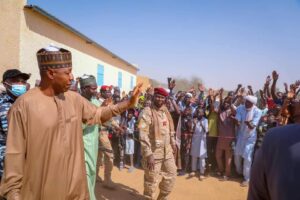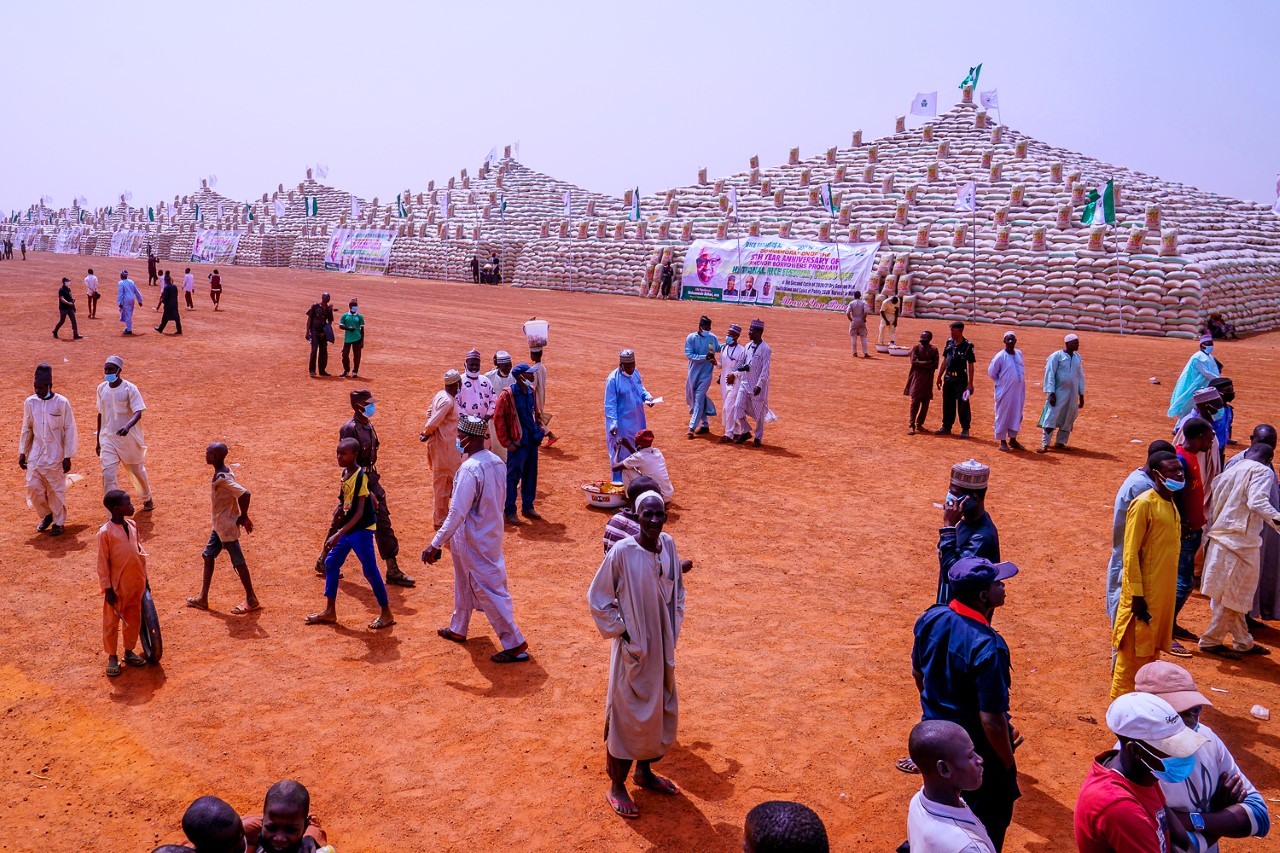Tanko Mohammed

Nigeria has decided to repatriate its 200,000 refugees who are currently in Cameroon, Chad and Niger as well as cater to the more than 2.7 million people displaced by activities of insurgents in northeast.
The evacuation of the refugees would start on February 27, 2021, with about 9,800 out of the more than 49,800 in neighbouring Cameroon, 120,000 in Chad and 49,000 in Niger.
The Governor in-charge of Borno, the epicentre of insurgency in northeast, Prof. Babagana Zulum, confirmed the evacuation in Abuja on Feburary 19, 2021 at a stakeholders meeting on the Implementation of Global Compact on Refugees that the refugees have shown their quest to return home.
Although Boko Haram insurgents and their collaborating ISWAP, he said the refugees have been yearning and agitating to come back for a long time.
Zulum said that officials of the Federal Ministry of Humanitarian Affairs, Disaster Management and Social Development were already in Cameroon to facilitate the repatriation of those in Minawo Camp.
He explained that the first batch of 9,800 Nigerians would be evacuated and resettled in Bama and Banki towns in Borno state.
Nigeria is troubled by a lot of citizens turned refugees in neighbouring countries of Chad, Niger and Cameroon and many others suffering in camps of Internally Displaced Persons (IDPs) as consequence of insurgency.
The rampaging Boko Haram fighters since 2009 backed by recently by ISAWP have turned three northeast states into a living hell causing deaths of more than 36,000 people, destruction of infrastructure and halting farming and fishing.
The insecurity, hunger and despair caused the drift of Nigerians to neighbouring countries where they enjoy minimum security while millions of others have been settled in camps created for displaced persons in some states of federation.
A meeting on tripartite agreement on the repatriation between Nigeria, Cameroon and the UN High Commission for Refugees, had been signed in Marwa in far north Cameroon.
A delegation of the federal government had also visited Nigerian refugee camps in the Chad Republic, the Special Adviser to the Governor on Communications and Strategy, Mr Isa Gusau.
Mr Basheer Mohammed, Federal Commissioner, National Commission for Refugees, Migrants and Internally Displaced Persons (NCFRMI), confirmed in Abuja during the meeting of the Technical Working Group (TWG) on repatriation of Nigerian refugees from Cameroon.
Mohammed, who is also the Chairman of the TWG, said that President Muhammadu Buhari had directed the group to remain steadfast in carrying out the assignment of returning Nigerian refugees from the three countries.
He further affirmed that arrangements were already in top gear towards actualising the planned return of the refugees commencing with those in Cameroon from Feb. 27.
He revealed that the TWG and the Cameroonian authorities met in Maroua, Cameroon from Feb. 4 to Feb. 10 to plan strategies for executing the voluntary repatriation of the refugees from Minawo Camp.
Even as the government is making frantic efforts to bring back its despair citizens taking refuge in neighbouring countries, it is also much concerned over the plight and welfare of the displaced persons in various camps.
The Internally Displaced Persons (IDPs) are camped in states, including Borno, Federal Capital Territoryu (FCT), Edo, Katsina, Zamfara, Borno, Cross River, Taraba, Bauchi, Katsina, and Kaduna.
The National Commission for Refugees, Migrants and Internally Displaced Persons (NCFRMI) reports that it has enrolled refugees into the National Health Insurance Scheme (NHIS) for effective healthcare management.
The Federal Commissioner, NCFRMI, Mr. Basheer Mohammed, said at a two-day stakeholders’ meeting on implementing the Global Compact on Refugees, in Abuja that the commission had concluded plans with the management of NHIS to begin the process of enrolling Internally Displaced Persons (IDPs) into the scheme.
According to him, in the interim, the commission is providing medical support for IDPs through collaboration with the National Hospital in Abuja.
In order to foster self-reliance and sustainable livelihood refuges and IDPs described as Persons of Concern (PoCs), the commission had begun series of projects to ensure economic empowerment of returnees and IDPs classified as PoCs in Nigeria.
One of such, “Project Reliance”, Mohammed noted was being undertaken in collaboration with the Central Bank of Nigeria (CBN) to empower one million PoCs.
“The project will run nationwide and the first phase of verification of beneficiaries has been concluded in Borno.
“Also, the proposed Project Resettlement Cities is another durable solution project of the commission aimed at resettling more than 5,000 IDPs in Nigeria in its first phase,” he added and the pilot phase would begin in Borno, Katsina, Zamfara and Edo states.
The Minister of Humanitarian Affairs, Disaster Management and Social Development, Mrs Sadiya Farouq, also reported that the nation was galvanising and polling resources to address the humanitarian challenge.
“It aim is to enable stakeholders to approach the humanitarian challenge from a durable solution perspective which requires closer, stronger and well-coordinated partnerships and collaborations across all levels of governance,’’ Farouq said.
In addition to efforts to provide for IDPs, the Ambassador of the State of Qatar in Nigeria, Mubarak AlMuhannadi, has also made the donation of $50,000 for the construction of an education learning centre for IDPs Camp in Abuja.
AlMuhannadi said the donation was to support the activities of Nigeria in providing succour to “people of concern’’ in Nigeria.
“We will partner with Nigeria in the areas of resettling displaced persons, setting up education learning centres, making them self-reliant or giving them back their lives of dignity,” AlMuhannadi added.
The management of the Internally Displaced Persons (IDP) camps has also resolved to go into mechanised farming to engage the older IDPs as a means of employment and producing sufficient food.













